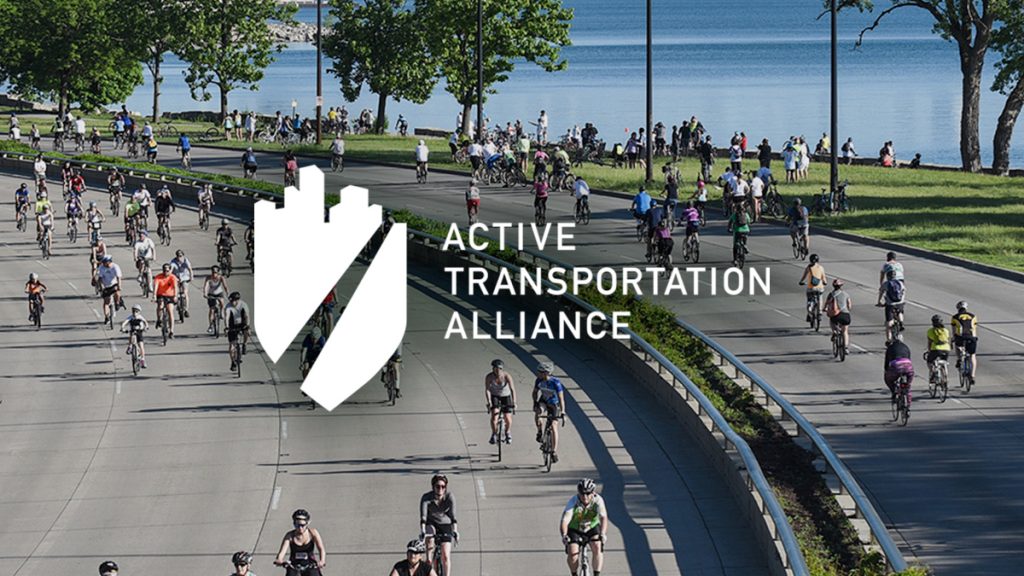For immediate release
May 31, 2017
Media Contact:
Ted Villaire
Active Transportation Alliance
Communications Director
O: (312) 216-0484
C: (312) 563-1118
[email protected]
Death toll on suburban roads nearly 3 times more than in the city in 2015
The culprit is more people driving on roads that are designed for speed rather than safety
Chicago, Ill: May 31, 2017 — Suburban traffic fatalities in 2015 outnumbered those in Chicago nearly 3 to 1, according to a new report from the Active Transportation Alliance.
“Many people are shocked to learn that our suburban communities have a far greater number of traffic fatalities,” said Ron Burke, executive director of the Active Transportation Alliance. “Why? Suburban communities have more people driving more cars at faster speeds on roads that are often designed to maximize travel speeds at the expense of public safety.”
Burke said the most important strategies to improve traffic safety are more enforcement of traffic laws and streets designed with safety in mind for everyone who uses them.
In 2015, 301 people died while walking, biking and driving on roads in suburban communities, while the city of Chicago saw 119 traffic fatalities. The greatest contrast occurred with motorist fatalities: 228 people died in cars in the suburbs vs 66 in the city during 2015 (2015 is the most recent year that official crash data is available from the Illinois Department of Transportation).
Also in 2015, 59 people were killed while walking in suburban communities while 46 people in Chicago were killed while walking. For people biking, 14 people in the suburbs were killed while 7 people were killed in the city.
One of the most powerful strategies for making streets safer and more welcoming is an international movement called Vision Zero, which aims to reduce and ultimately eliminate serious traffic injuries and fatalities. The city of Chicago is preparing to release a Vision Zero plan in coming weeks. The Active Transportation Alliance urges suburban Chicagoland communities to follow Chicago’s lead and start drawing up Vision Zero plans.
“Our streets are valuable public spaces and using them shouldn’t require putting your life at risk,” said Burke. “The good news is that we know how to make our streets safer for everyone. Vision Zero has saved countless lives in the United States and around the world — we need to do the same here.”
Other points highlighted in the report:
- Traffic injuries are unchanged or decreasing since 2005 for people in cars, walking and riding bikes.
- Since 2005, traffic fatalities are mostly unchanged for people in cars and riding bikes, but have increased for people walking.
While many people think expressways pose the greatest danger for crashes in the Chicago region, it’s the arterial roads where crashes are most likely to happen — despite the fact that arterial roads comprise only 14 percent of regional roadways. Arterial roads, which are mostly controlled by IDOT, account for 53 percent of the reported crashes region wide.
# # #
About the Active Transportation Alliance
The Active Transportation Alliance is a non-profit, member-based advocacy organization that advocates for walking, bicycling, and public transit to create healthy, sustainable and equitable communities. The organization works to build a movement around active transportation, encourage physical activity, increase safety and build a world-class transportation network. The Active Transportation Alliance is supported by more than 7,000 members and 1,000 volunteers. For more information about the Active Transportation Alliance, visit www.activetrans.org or call 312.427.3325.

